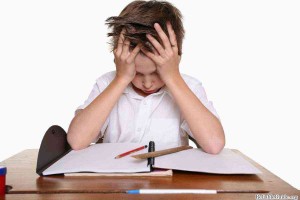ADHD - Adolescent and Adult
Attention-Deficit Hyperactivity Disorder (ADHD) is characterized by symptoms of impulsive behavior, emotional outbursts, hyperactivity, inattention, loss of focus, forgetfulness, and disorganization.
These symptoms may be present all at once or may only appear occasionally, depending on the situation.
It is not the diagnosis that is dangerous but rather the secondary impact of not treating that can become detrimental.
When kids or adults go untreated they can become despondent, lack motivation and it can impact self worth.

How Therapy Can Help my ADHD
Psychotherapy is effective for the treatment of the symptoms related to ADHD because it addresses behavior modification. Adolescents and adults can have a difficult time regulating their emotional and behavioral response to situations.
Learning effective coping strategies is one way to gain control over symptoms.
This would include developing a plan for organization and prioritization in the key areas of difficulty for those with ADHD challenges.
Goal setting, reward and consequence, and emotional regulation are other areas that are addressed during psychotherapy for ADHD.
Therapy can also help discover whether attention issues are really the root of the problem.
In many cases, learning disabilities, anxiety, anger, problems at home, or other emotional or cognitive issues can be masked by a child’s misbehavior.
Therapy can help uncover the true nature of the child’s inappropriate or troubling behavior.
ADHD in Adults
ADHD continues into adulthood in about two thirds of American children with ADHD. Nearly half of these adults have never been diagnosed or received treatment for their symptoms, and only about 25% of them end up seeking help.
Generally, hyperactivity symptoms are less prevalent in adulthood, but symptoms of inattention and impulsivity often persist. It may also be difficult to focus on tasks or prioritize activities, and this may lead to missed deadlines and forgotten social engagements.
About half of adults who have ADHD also have some form of anxiety, and these adults often experience difficulty in their daily lives, as the combination of ADHD and anxiety symptoms can often lead to impaired function.
ADHD symptoms in adulthood may manifest in different ways than they did in childhood. ADHD can have a negative effect on relationships and success in the workplace, as mood swings and a short temper are often characteristic of the condition, as is difficulty coping with stress.
Treatment of ADHD in adults is generally the same as it is in children.
Medication might be prescribed along with therapy, although depending on presenting symptoms and severity, sometimes the condition can be treated without medication.
Family or marital counseling may also be helpful when one’s ADHD has an effect on loved ones and family members.
